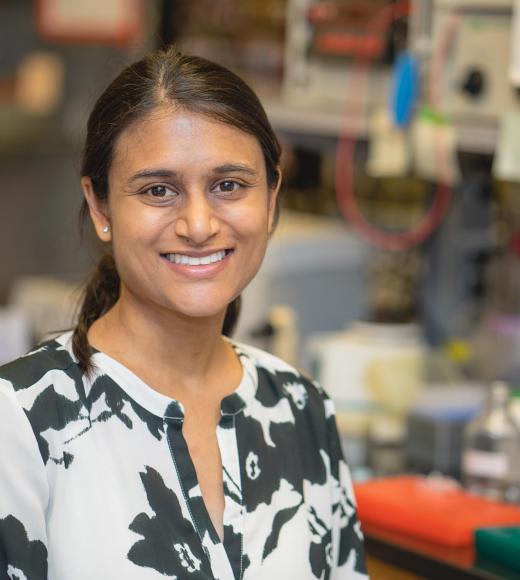
Position Title
Associate Professor
- Microbiology and Molecular Genetics
- Chemical Engineering
Research Interests
The Shah Lab uses systems and synthetic biology to study virus-host interactions and understand how viruses turn cells into microscopic virus factories.
Flavivirus-host interactions
Mosquito-borne flaviviruses such as dengue virus and Zika virus are a source of emerging and re-emerging infectious diseases. We study how these viruses hijack host machinery through virus-host protein interactions to better understand their replication and develop therapeutics. We have two active areas of research on flavivirus-host interactions:
Antiviral Gene Expression Program
Cells respond to viral infections by activating the expression of antiviral genes such as interferon stimulated genes (ISGs), and viruses are continually evolving ways to evade this antiviral response. We study how flaviviruses including dengue and Zika virus hijack host gene expression machinery to inhibit the antiviral innate immune response.
Zika virus associated microcephaly
Viruses have long been known to cause birth defects when fetuses are infected in utero. For example, rubella virus, and cytomegalovirus cause a range of birth defects including microcephaly, in which brain and head size is severely reduced. Viral microcephaly has received renewed attention since Zika virus emerged on a global scale in 2015. We are integrating comparative proteomic approaches with high-throughput animal models to build an experimental pipeline. This will enable the rapid delineation of how Zika virus-host protein interactions lead to dysfunction of host proteins and inhibition of brain development.
Capturing cellular responses with live-cell imaging
Viruses perturb cells in a variety of ways. We build live-cell imaging systems to track how viruses and other environmental perturbations alter cellular behavior. We couple this with simple mechanistic models of cellular pathways or large-scale feature extraction to model and predict cellular responses.
Biomolecular Engineering for Improved Viral Protein Production
We produce viral proteins for research purposes, but some viral proteins are incredibly challenging to produce and are important inputs for various applications like vaccines and diagnostics. We use biomolecular engineering and biomanufacturing approaches to improve SARS-CoV-2 protein production.
Synthetic Control of Gene Expression
Just as viruses can control gene expression, we develop orthogonal methods to control gene expression using light and nutrients. These technologies have applications in tissue engineering and cultivated meat.
- 2005 B.S. in Chemical Engineering, Massachusetts Institute of Technology
- 2011 Ph.D. in Chemical Engineering, University of California, Berkeley
- 2017 Postdoc in Systems Virology, University of California, San Francisco
